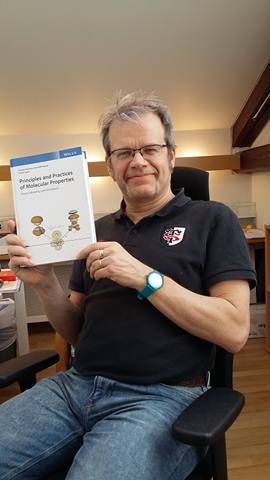Book release: 'Principles and Practices of Molecular Properties: Theory, Modeling, and Simulations'

The book, Principles and Practices of Molecular Properties: Theory, Modeling, and Simulations (Wiley), is written by Patrick Norman, head of the Department of Theoretical Chemistry and Biology at KTH Royal Institute of Technology in Stockholm, Sweden; Trond Saue, professor at Paul Sabatier University in Toulouse, France; and Kenneth Ruud, professor of chemistry at the University of Tromsø - The Arctic University of Norway (UiT).
Saue is this year participating in the CAS project Molecules in Extreme Environments. Ruud is an alternate member of the CAS Oslo Board of Directors.
‘A central theme in my research has been relativistic calculations of molecular properties,’ Saue said. ‘One important source of information about molecules is spectroscopy, that is, looking at interactions between light and molecular materials. Generally speaking, you gather information that corresponds to molecular properties by placing molecules in different combinations of electric and magnetic fields.’
Saue said Norman invited him and Ruud to work on the project back in 2007. Last month -- more than a decade later -- the book finally saw the light of publication. The book also forms the basis of a five-day school on molecular response properties that the three authors host every year, alternating between Europe and the US.
‘It has been a very educational, demanding, and exciting journey with two good friends and colleagues,’ Saue said. ‘One important motivating factor for me was not just the opportunity to collect and systematise knowledge and experience that I had collected during my career as a scholar, but to seek out hard-to-find answers to questions that I myself had been pondering.’